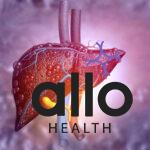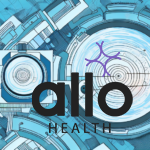10 Reasons to Test for HIV

Allo Health is dedicated to personalized well-being, offering support and trusted information tailored to individual health goals. The platform emphasizes human-generated content, led by a distinguished medical team of experts, including physicians and sexual health specialists. Their commitment to credibility involves rigorous fact-checking, authoritative research, and continuous updates to ensure accurate, up-to-date information. Allo Health's unique approach goes beyond conventional platforms, providing expert-led insights and a continuous commitment to excellence, with user feedback playing a crucial role in shaping the platform's authoritative voice.

Dr Sanina Mansoor holds MBBS degree from Yenepoya university,Mangalore.She has 8 years of experience working as a medical officer at various health centres and medical colleges.
Why This Was Upated?
Our experts continually monitor the health and wellness space, and we update our articles when new information became available.
Updated on 15 February, 2024
- Article was updated as part of our commitment to diversity, equity, and inclusion.
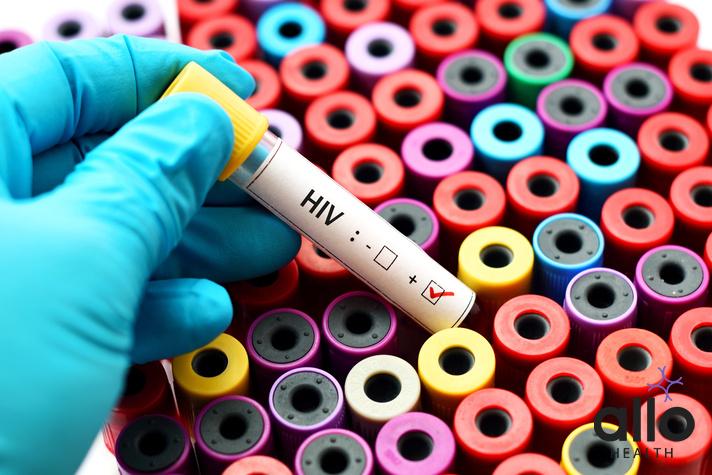
"The following blog article provides general information and insights on various topics. However, it is important to note that the information presented is not intended as professional advice in any specific field or area. The content of this blog is for general educational and informational purposes only.
Book consultation
The content should not be interpreted as endorsement, recommendation, or guarantee of any product, service, or information mentioned. Readers are solely responsible for the decisions and actions they take based on the information provided in this blog. It is essential to exercise individual judgment, critical thinking, and personal responsibility when applying or implementing any information or suggestions discussed in the blog."
Testing for HIV is a critical component of maintaining healthy lives and preventing the spread of the virus. With advancements in medicine and technology, testing for HIV has become more accessible, accurate, and convenient. In this article, we’ll delve into the 10 reasons why testing for HIV is essential, covering various aspects from early detection to effective treatment and prevention strategies.
What is HIV?
HIV, or human immunodeficiency virus, is a retrovirus that attacks the body’s immune system, specifically targeting CD4 cells, weakening the body’s ability to fight infections and diseases.
- Transmission: HIV is primarily transmitted through unprotected sex, sharing needles or syringes among injection drug users, and from an HIV-positive mother to her child during pregnancy, childbirth, or breastfeeding.
- Testing: HIV testing involves various methods such as antibody tests, rapid tests, and nucleic acid tests, which detect the presence of the virus in blood or oral fluid samples.
- Treatment: Antiretroviral therapy (ART) is the primary treatment for HIV, suppressing viral load and slowing disease progression. HIV-positive individuals can lead healthier lives with timely access to ART and routine follow-up testing.
- Prevention: Prevention strategies include condom use, pre-exposure prophylaxis (PrEP), post-exposure prophylaxis (PEP), and promoting safer behaviors among high-risk groups.
- Impact: HIV can lead to AIDS (Acquired Immunodeficiency Syndrome), characterized by a weakened immune system and increased susceptibility to opportunistic infections. However, with effective treatment and management, HIV-positive individuals can live longer, healthier lives.
Concerns Due to HIV
- Health Risks: HIV infection weakens the immune system, increasing susceptibility to opportunistic infections and diseases, leading to AIDS if left untreated.
- Transmission Risk: Individuals with HIV can transmit the virus to others through unprotected sex, sharing needles, or from mother to child during pregnancy, childbirth, or breastfeeding.
- Stigma and Discrimination: Stigma surrounding HIV/AIDS can lead to discrimination, social isolation, and barriers to accessing healthcare and support services, impacting mental health and well-being.
- Impact on Relationships: Disclosure of HIV status may strain relationships, affecting trust, intimacy, and communication between partners. Fear of transmission can lead to anxiety and stress.
- Treatment Challenges: Adherence to antiretroviral therapy (ART) is crucial for managing HIV, but side effects, drug resistance, and access to medication pose challenges. Monitoring viral load and CD4 count is essential for effective treatment.
- Sexual and Reproductive Health: HIV-positive individuals may face challenges in maintaining sexual health, fertility, and family planning decisions. Pregnancy and childbirth require careful management to prevent mother-to-child transmission.
- Mental Health Impact: Living with HIV can lead to psychological distress, depression, and anxiety, affecting overall quality of life and treatment adherence.
- Economic Burden: Managing HIV requires regular medical appointments, medications, and support services, leading to financial strain, especially for marginalized communities.
- Transmission Risk Factors: High-risk behaviors, such as injection drug use, multiple sexual partners, and unprotected sex, increase the risk of HIV transmission and complicate prevention efforts.
- Public Health Challenges: HIV/AIDS poses significant public health challenges, including prevention, testing, treatment access, and stigma reduction, requiring comprehensive strategies and community involvement to address effectively.
Different Testing for HIV
There are several testing options available for HIV detection, each with its own advantages and considerations:
- Antibody Tests: These tests detect antibodies produced by the body in response to HIV infection. They are commonly used for routine screening and can be done with a blood sample, oral fluid, or finger prick. Rapid antibody tests provide results in minutes, while enzyme-linked immunosorbent assays (ELISA) may take longer but are highly accurate.
- Nucleic Acid Tests (NAT): NAT directly detect HIV genetic material (RNA or DNA) in blood samples. They are highly sensitive and can detect HIV earlier than antibody tests, reducing the window period between exposure and detection. NAT is often used for follow-up testing after potential exposure or in combination with antibody tests for confirmation.
- Combination Testing: Some tests combine antibody and antigen detection, offering both rapid results and early detection capabilities. These tests can identify both HIV antibodies and viral proteins (antigens) in the blood.
- Self-Testing Kits: HIV self-testing kits allow individuals to test themselves in the privacy of their own homes using oral fluid or blood samples. They offer convenience and confidentiality, but positive results require confirmation with a follow-up test by a healthcare provider.
- Anonymous Testing: Anonymous testing allows individuals to get tested without providing personal information, reducing barriers to testing for those concerned about privacy or stigma.
- Routine Health Care Testing: Many healthcare providers offer HIV testing as part of routine health check-ups or during prenatal care for pregnant individuals to prevent mother-to-child transmission.
10 Reasons to Test for HIV
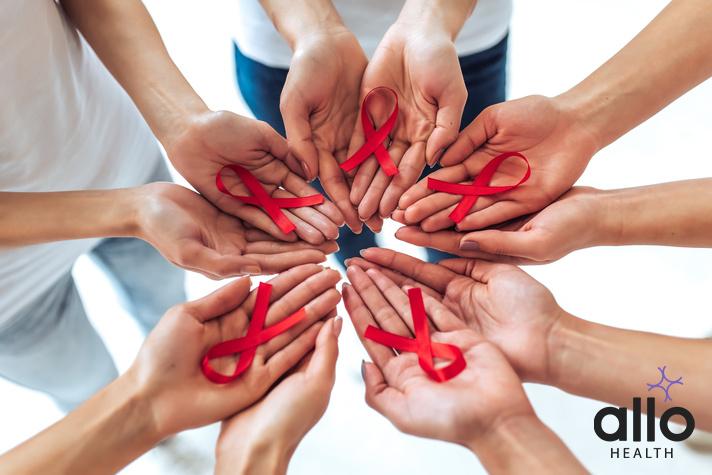
With a range of testing options available, individuals can choose the method that best suits their needs and preferences, ensuring timely detection and access to appropriate care and support services.
- Early Detection: Testing for HIV allows for early detection, which is crucial for initiating antiretroviral therapy (ART) promptly, suppressing viral load, and slowing disease progression. This early intervention can significantly improve health outcomes and extend life expectancy.
- Know Your Status: Knowing one’s HIV status empowers individuals to make informed decisions about their health and take appropriate measures to prevent transmission to others, including sexual partners. It also facilitates access to necessary medical care and support services.
- Prevent Transmission: Regular testing helps individuals understand their risk factors and take proactive measures to reduce the risk of transmitting the virus to others, particularly during high-risk exposure situations or among sexual partners.
- Access to Treatment and Support: A positive HIV diagnosis enables individuals to access essential treatments, including ART, and support services that can help manage the condition effectively and improve overall health outcomes.
- Prevent Opportunistic Infections: Timely detection of HIV allows healthcare providers to monitor for and prevent opportunistic infections, which can significantly impact the health and well-being of HIV-positive individuals.
- Community Health Promotion: Routine testing contributes to community health promotion efforts by raising awareness, reducing stigma, and encouraging healthy behaviors among high-risk groups and the general population.
- Pregnancy and Prevention: Testing during pregnancy helps prevent mother-to-child transmission of HIV by allowing for appropriate medical interventions, such as ART and HIV post-exposure prophylaxis (PEP).
- Identify High-Risk Groups: Testing helps identify high-risk groups and populations, facilitating targeted prevention efforts, outreach programs, and access to additional testing options, such as HIV self-testing kits.
- Promote Safer Behaviors: Knowledge of HIV status encourages individuals to adopt safer behaviors, such as using condoms and practicing harm reduction strategies, particularly among injection drug users.
- Reduce Stigma: By normalizing HIV testing as part of routine healthcare and promoting open discussions about sexual health, testing helps reduce stigma associated with HIV/AIDS, encouraging more individuals to seek testing and care without fear of judgment or discrimination.
Accuracy Rates of Different HIV Tests
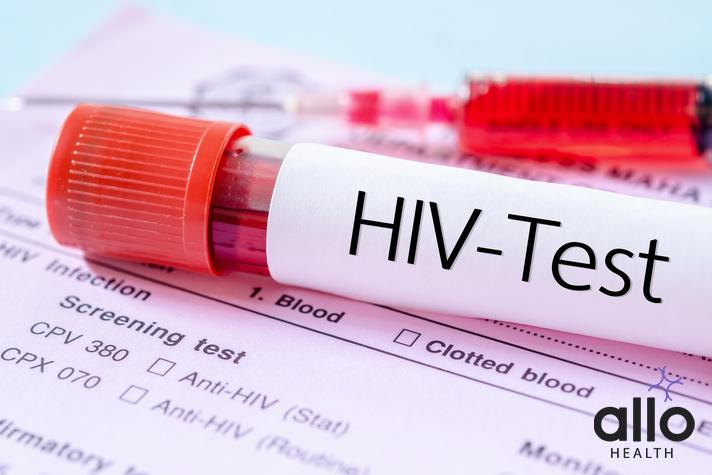
HIV Antibody Tests:
- Accuracy: Highly accurate, with sensitivity and specificity rates exceeding 99%.
- Detection Window: Detects antibodies produced by the body in response to HIV infection, typically within 3 to 12 weeks after exposure.
Rapid Tests:
- Accuracy: Rapid HIV tests have comparable accuracy to standard antibody tests, with results available within minutes.
- Convenience: Ideal for quick screening in non-clinical settings or areas with limited access to healthcare facilities.
Nucleic Acid Tests (NAT):
- Accuracy: Highly sensitive and specific, detecting HIV genetic material directly.
- Detection Window: Can detect HIV as early as 10 to 15 days after exposure, making it suitable for early diagnosis.
Combination Tests:
- Accuracy: Combines antibody and antigen detection, enhancing early detection rates.
- Convenience: Provides comprehensive results in a single test, simplifying the testing process for individuals.
HIV-1 RNA PCR Test:
- Accuracy: Highly accurate, capable of detecting HIV RNA in the bloodstream.
- Early Detection: Can detect HIV as early as 7 to 10 days after exposure, making it suitable for emergency and post-exposure testing.
Additional Testing Options:
- Accuracy: Varies depending on the specific test and technology used, but generally offer high accuracy rates.
- Flexibility: Provides alternative testing methods for individuals with specific needs or preferences.
Overall, HIV testing technologies have evolved to offer high accuracy rates and early detection capabilities, empowering individuals to make informed decisions about their health and reduce transmission risk.
Resources and Support for Those with HIV
Antiretroviral Therapy (ART): Individuals living with HIV have access to ART, a combination of medications that suppress the HIV virus, manage viral load, and boost the immune system to fight off infections.
- Healthcare Providers and Health Departments: Trained healthcare providers offer personalized care, including regular monitoring, follow-up testing, and health consultations to manage HIV effectively.
- Community Health Centers: Community health centers provide comprehensive HIV care, including testing, treatment, counseling, and support services tailored to the needs of HIV-positive individuals.
- Support Groups: Support groups offer emotional support, peer counseling, and opportunities for social connection, helping HIV-positive individuals cope with the challenges of living with the virus.
- Health Education and Counseling: HIV-positive individuals receive education about the virus, transmission risks, treatment options, and adherence to medication regimens through counseling sessions and health consultations.
- HIV Post-Exposure Prophylaxis (PEP): PEP is available as emergency treatment for individuals who have been exposed to HIV, reducing the risk of infection if administered within a short window period after exposure.
Conclusion
Testing for HIV is a crucial step towards achieving healthier lives and preventing the spread of the virus. With advancements in testing technologies and treatment options, individuals can take control of their health, reduce transmission risk, and contribute to healthier communities. Don’t wait; get tested today for a healthier tomorrow.
Most Asked Questions
-
Why should I get tested for HIV?
Getting tested for HIV is important for several reasons. Knowing your HIV status can help you access life-saving treatments early, protect your sexual partners, and reduce the risk of transmitting the virus to others. Early detection also allows for timely intervention to prevent disease progression and complications.
-
How often should I get tested for HIV?
It’s recommended to get tested for HIV at least once as part of routine health care, especially if you engage in behaviors that may increase your risk of exposure. If you have unprotected sex with multiple partners, use injection drugs, or have been exposed to someone with HIV, more frequent testing may be necessary.
-
What happens if I test positive for HIV?
A positive HIV diagnosis is not the end of the world. It means you can access treatment and support services that can help you manage your condition and live a healthy life. Your healthcare provider will work with you to develop a treatment plan tailored to your needs and provide guidance on preventing transmission to others.
-
Is HIV testing confidential?
Yes, HIV testing is confidential. Your test results are protected by privacy laws, and healthcare providers are required to keep your information confidential. You can also opt for anonymous testing at community health centers or health departments if you prefer not to disclose your identity.


